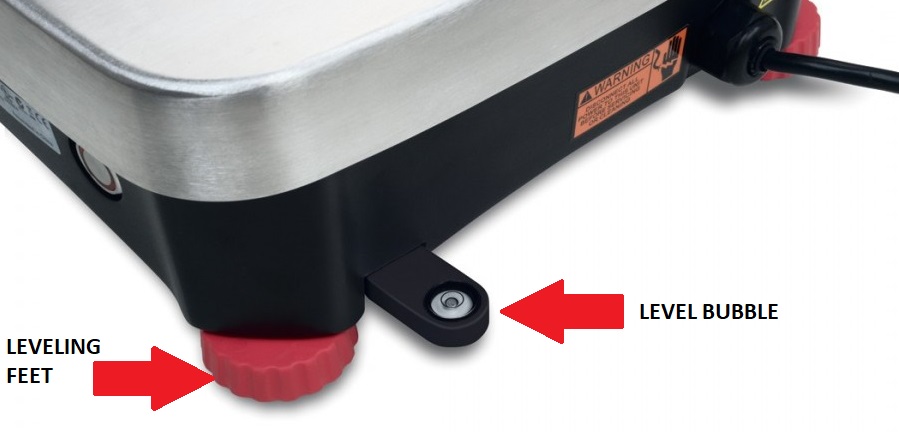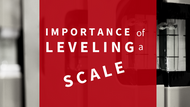Why Leveling a Scale is Important
Posted by Seth V on Apr 10th 2018
Why is it so important to level a scale or balance? Does it really matter and is it worth my time? I asked myself these questions many times when I first started in the scale industry. I didn't realize just how important leveling a scale before use is.
When I first started as a technician I was taught how to properly test and calibrate scales. In short, the procedure always followed a simple guideline. I would first test the scale with the appropriate weights without moving, cleaning, or adjusting anything on the scale. After recording my findings I would clean and level the scale and test again. I found that leveling the scale was often the difference between the scale passing and failing its allowable tolerance.
So what was happening when the scale was out of level that caused inaccurate readings? The effect is due to the fact that the force measured is no longer parallel with the direction of gravity. Also, load cells are not designed to measure downward and sideways force accurately. The actual load cell, balance, or housing will deflect some of the measured force and this creates an inaccurate reading. When the scale is perfectly level, the force measured becomes parallel with the force of gravity and you have an accurate reading. This is why it is so important that scales are calibrated when perfectly level.

As a rule, its critical for any scale to remain level. The higher the resolution and accuracy, the larger the noticeable effect. With this in mind, it is exceptionally important for analytical and semi-micro balances to remain exceptionally level. It is also recommended to have a level sturdy table to operate on. However, it is not just high precision weighing that is effected by level though.
For example, in my years of service, there is one specific service call I went on that stands out. I was called in to solve a problem for a packaging company. They had issues with the boxes they were shipping not having the correct amount of parts in them. I was asked to fix their 60 pound capacity parts counting scales. So I did what any scale technician would do and went through the troubleshooting process. I found nothing wrong with the scale other than it was a little out of calibration and not perfectly level. After adjusting the scale feet so that the scale was level and sturdy, I calibrated it and tested its parts counting feature. No errors were found. After I filled out a service report and talked with the company about my findings, I stayed to watch an operator use the scale. The operator setup the scale for parts counting and then moved it to another station to start filling boxes. However, they didn't level the scale and incorrect counts were being made. Boxes were being filled with too few or too many pieces. After instructing the operator to level the scale and try again, the counts were accurate.
After discussing this with the operator and the company, they were convinced to make leveling their scales part of their everyday SOP. The problem was solved. And it was as simple as making sure their scales are level.





